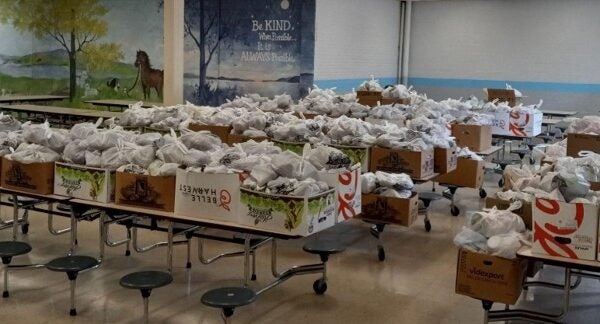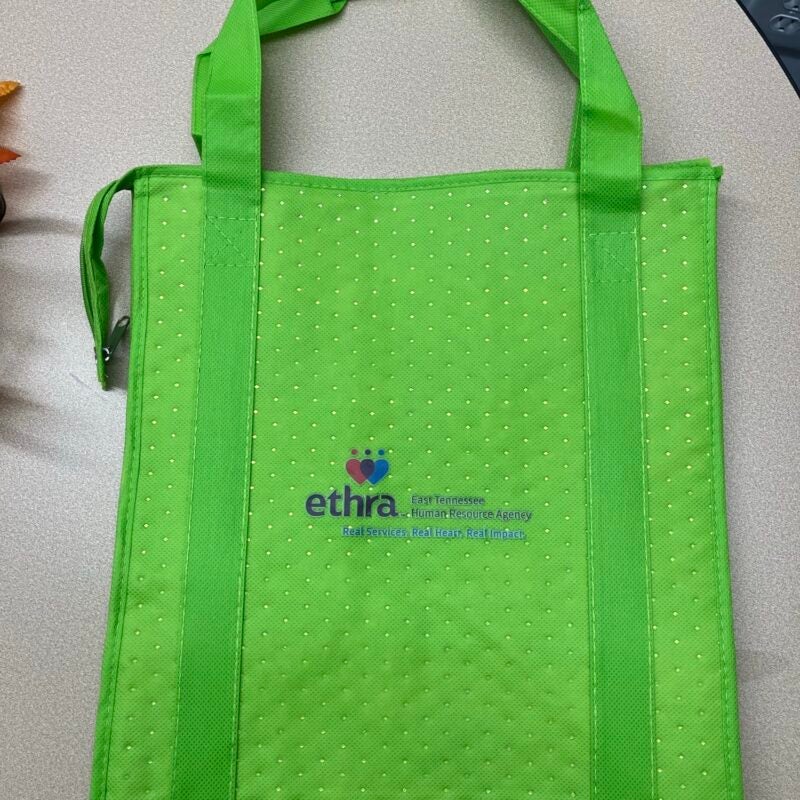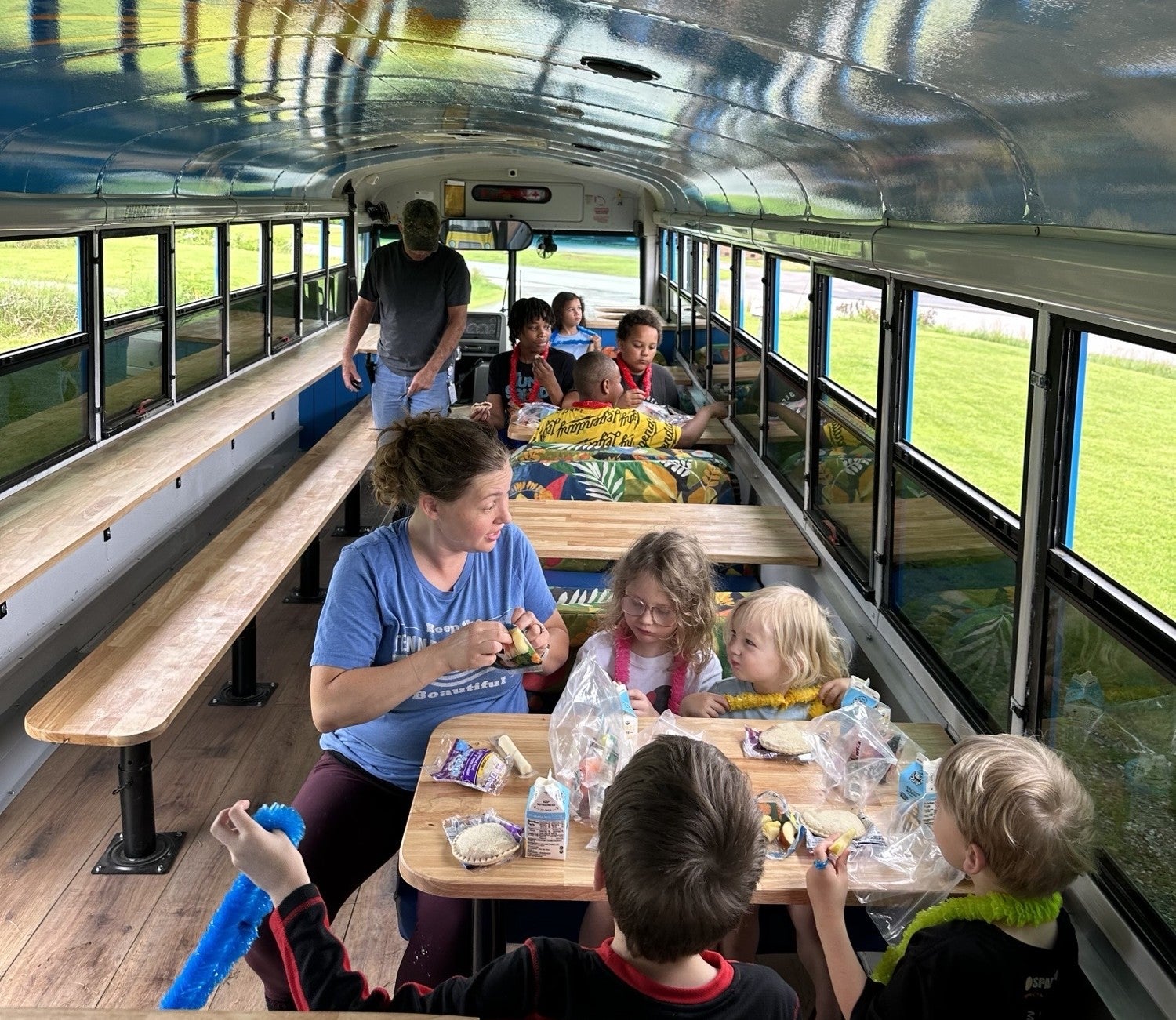In rural East Tennessee, summer can bring more than just heat – it can mean hunger for thousands of children who rely on school meals during the academic year. But thanks to the East Tennessee Human Resource Agency (ETHRA), many of those kids now receive nutritious meals at home through a flexible, school-centered summer meal program built specifically for rural communities.
When federal law changed in 2022 to allow non-congregate summer meal service in rural areas, ETHRA didn’t start from scratch. They adapted quickly, using their existing relationships with local schools and years of experience running summer food programs to build a new, community-based model.
A Policy Shift Opens the Door
The Consolidated Appropriations Act of 2023 marked a turning point. Signed in December 2022, the law made non-congregate summer meal service a permanent option in rural areas that lack access to traditional, in-person meal sites. In December 2023, the USDA released its Interim Final Rule (IFR), outlining new guidance to help states and sponsors implement the policy starting in 2024.
Under these updated rules, summer meal sponsors in rural areas could now offer take-home or delivered meals for children who couldn’t access a congregate site. For families in East Tennessee, where transportation, distance, and work schedules often limit access to centralized feeding locations, this was a game changer.
“This works because it’s local,” said Veronica Stephens, ETHRA’s Summer Food Service Program (SFSP) Director. “We’re not reinventing anything. We’re just meeting families where they are, with people they already know.”
From Congregate to Non-Congregate
ETHRA was no stranger to summer meals. For years, they had partnered with schools to offer congregate feeding programs. During the COVID-19 pandemic, when the USDA issued temporary waivers for non-congregate service, many schools began operating take-home meal models.
When the non-congregate option became permanent, ETHRA returned to its school partners with a simple offer: let us handle the logistics and you focus on feeding the kids.
“After their experience with COVID, I think they were happy to partner again and not have to take on the whole thing,” said Stephens.

Schools as Summer Meal Sites and Vendors
ETHRA’s model stands out because of its simplicity and community ownership. Schools, serving as a summer meal site, also serve as vendors by preparing and distributing their own meals using existing staff and kitchen facilities. ETHRA provides training, monitors compliance, submits all paperwork, and reimburses the schools monthly.
Stephens kicks off the process each January by contacting every school district in the region. Past partners typically rejoin quickly. For districts that don’t respond, ETHRA seeks out alternatives, like Boys & Girls Clubs, churches, nonprofit kitchens, or even small businesses with commercial kitchens, to make sure kids still get fed.
“We basically just write the schools a check each month for the value of meals served,” Stephens explained. “They already have kitchens and staff – they just needed help with everything else.”
Community Partnerships Fill the Gaps
When schools opt out of cooking but still want to distribute meals as a site, ETHRA partners with third-party vendors to prepare and deliver the food in time for meal service. Once a site is approved, ETHRA trains the staff and shares all USDA meal pattern requirements to ensure menus are kid-friendly and compliant.
ETHRA coordinates closely with vendors, site supervisors, and local monitors to resolve issues and retrain staff when needed. Strong communication is a key part of the system.
“We encourage direct relationships between vendors and sites. If there’s ever an issue – missed pickups, or another issue – the vendor contacts us right away, and we step in,” said Stephens.
Even in harder-to-reach counties, ETHRA finds creative solutions. They’ve worked with local Subway franchises, partnered with adult day habilitation programs that have kitchens, and supported Boys & Girls Clubs in operating as open meal sites. Each partner is trained and contracted to ensure meals meet USDA standards.
“Once I’ve worked with a vendor once, they usually want to do it again the next year,” Stephens said.



Looking Ahead
In 2025, ETHRA plans to expand shelf-stable meal availability and grow its network of off-campus meal partners, especially in areas without active school participation. The model is designed to scale and based on community and local school food authority participation.
“We’ve been doing this for 20 years, but we’re still learning,” Stephens said. “The goal is to make it easier for schools and better for families.”
ETHRA’s work is a powerful example of how community-based organizations can successfully implement non-congregate meal service by partnering with school districts. By meeting families where they are, cutting administrative burdens for schools, and empowering local organizations, they’re helping ensure no child in East Tennessee goes hungry when school is out.
Join us in supporting organizations like ETHRA that are ending childhood hunger in rural communities across the country.
Read our recent case study that explores ETHRA’s unique program model and school-centered approach to expand summer food access.
You can visit ETHRA’s website at https://www.ethra.org/.



